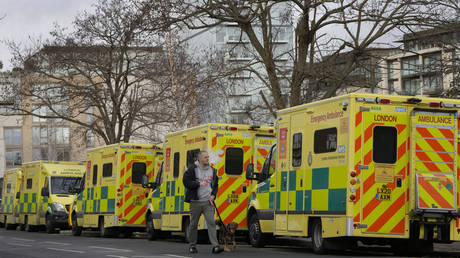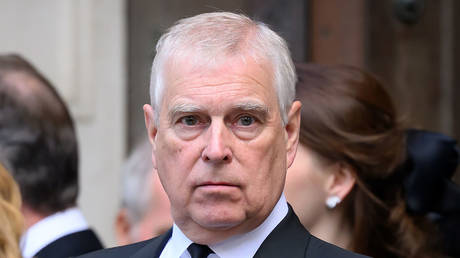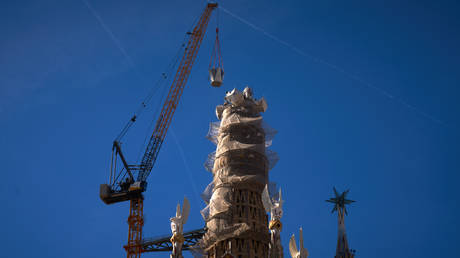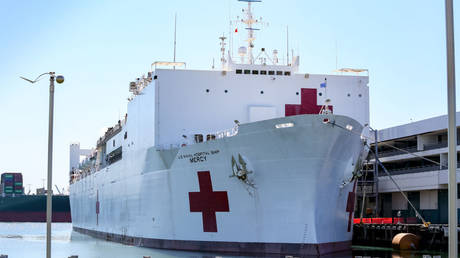
With an ambulance strike ongoing, the UK’s National Health Service is trying to reduce unnecessary hospital visits
UK National Health Service (NHS) Medical Director Stephen Powis has urged the British public not to become too inebriated over the holidays, in order to avoid a visit to the emergency room. UK ambulance personnel went on strike on Wednesday, reducing coverage to a bare minimum.
Speaking to BBC Radio on Tuesday, Powis said that “drinking responsibly” would help ease the “record demand we are seeing on urgent and emergency care.”
“Don’t get so drunk that you end up with an unnecessary visit to A&E,” he stressed.
Nine ambulance trusts across England and Wales have joined the action, involving paramedics, dispatchers, and support workers. The disruptions are the largest ambulance strikes to hit the UK since the 1980s, and NHS bosses have already instructed hospitals to free up beds and ensure patients are admitted within 15 minutes so that the few crews operating can respond to more calls.
The ambulance strike was preceded by another one on Tuesday involving more than 10,000 nurses, the largest in the 74-year history of the NHS . A similar nurses’ walkout last Thursday led to the rescheduling of 16,000 appointments and surgeries, according to NHS figures.
The nurses and ambulance workers are demanding pay raises to compensate for inflation, but Prime Minister Rishi Sunak has vowed to hold out until the next scheduled round of pay talks in spring.
In a separate warning on Tuesday, Health Minister Will Quince urged Britons to avoid “risky activity,” and not to call for an ambulance unless in a “life-threatening situation.”
More than two thirds of British drinkers consume more alcohol over the Christmas period than they normally would, according to research by alcohol charity Drinkaware. Alcohol is responsible for up to 35% of ambulance and emergency department costs in the UK, according to a 2015 study by the Nuffield Trust.




